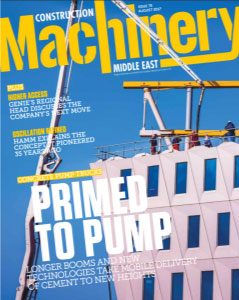Value your worth
 The top five reasons to get your machinery and business assets valued
The top five reasons to get your machinery and business assets valued
Do you know what your business and machinery assets are worth? As we are now in the thick of the hot, quiet summer months, this quite often leads to a period of inactivity. Therefore, this is just the right time to start looking at those tasks which tend to get left to the last minute, one of those being valuing one’s company assets. So for this month’s edition, we have put together the top five reasons why you need to get up to date machinery and business asset valuation advice.
Insurance assessments: reinstatement or indemnity
There are two bases for insurance; reinstatement with new which replaces the existing with brand new and indemnity which replaces items like for like i.e. those in a similar condition or of similar age.
In the event a small part of machinery experiences partial damage, the cost of shipping, supplying and fitting the new part can be a considerable amount. Therefore, insurance should cover the replacement cost, not the historic cost or market price. If a company originally bought an asset at a discounted price, the true insured figure should reflect the price for a walk-in customer, not the discounted price.
In the case of older machinery which has no modern equivalent replacement or for companies who wish to reduce their premium payments, a corporate decision should be made to assess the equipment for indemnity value only. Indemnity value takes into account the used value of similar older machinery. The valuation report can be used to assist in negotiations with insurers and insurance brokers when setting insurance premiums.
It is important to have a valuation report for insurance policies showing the manufacturers details and specification, along with the new replacement cost of the machine including delivery duty, any spare parts and optional extras that are included. In the event of a loss, an independent valuation report will speed up the negotiation process to enable the replacement of equipment or machinery.
Loan security
Many construction machines can go some way to act as loan security collateral should the owner wish to raise finance. In this scenario, age and condition as well as the stated hours on the machine and engine are vital components to be aware of. Attachments and options are also taken into account when considering a value estimate along with past sales of similar machines, the manufacturer and known reliability of the type and model.
Past sales and what is currently on offer can give an indication of the likely value, although it will be the valuer’s final assessment which is based on experience and judgement, which will be used for arriving at the final loan security valuation.
When searching for the correct valuer, it is important to ensure their reports are recognised by banks and adhere to Royal Institute of Chartered Surveyors (RICS) and International Financial Reporting Standards (IFRS) guidelines. The report should also be signed by RICS or API certified valuers who are registered as specialised machinery and business assets surveyors.
Accounting purposes
New owners taking control of the business and business assets require a valuation so they can allocate the purchase cost and link the asset to the original invoice. This exercise is normally run in conjunction with an insurance assessment which can assist in reviewing the asset register for accuracy and to revalue for insurance cover.
Reporting will include a priced detailed schedule showing assets and location, together with a link to the invoice copy and cost information; this is essential for management accounting.
International Financial Reporting Standards (IFRS)
On July 1 2015 the UAE Commercial Companies Law No.2 of 2015 was introduced by the government, requiring that any valuations for accounts purposes must adhere to International Accounting Standards and this was assumed to mean that they are to be undertaken in accordance with the IFRS. These standards require asset values to be reported on a regular basis and as more international regulation is coming into force, international financial reporting standards must be adhered to.
IFRS also encompasses accounting practices such as Purchase Price Allocation (IFRS 3) which is required when one company takes over or purchases the assets of another company.
Market value for take over purposes – sale of the business
Should a business decide to merge or acquire another business, it is usual as part of the due diligence process to have an independent valuation carried out of the company’s assets which is usually incorporated into the heads of agreement. Due diligence upon hand over uses the valuation report for quantities and models and allows for any discrepancy amendments to be taken into account in the final accounting.

